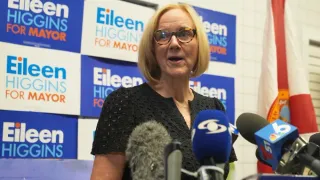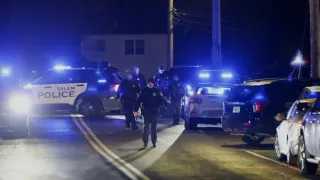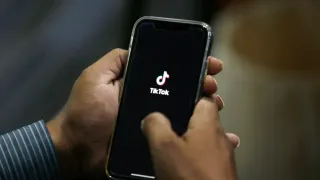January 11, 2022
New Study Explores COVID Vaccination Rates, Hesitancy Among LGBTQ Youth
Kilian Melloy READ TIME: 3 MIN.
A new study reveals fresh data around COVID vaccination rates and hesitancy among LGBTQ+ youth, finding that education and socio-economic status are among the chief factors, LGBTQ+ advocacy organization Out Boulder said in a press release.
"A key finding of the survey is that economic disadvantage and race make a meaningful impact on vaccination rates and levels of acceptance," the release summarized. Out Boulder, in partnership with El Centro AMISTAD, which advocates for immigrants, and Unwoven Ventures, spearheaded the survey.
The emotional and mental health of LGTBQ+ youth has been a focus of past studies, which have yielded alarming results. "L.G.B.T.Q. youth are already a vulnerable population and at higher risk for anxiety, depression, homelessness and self-harm than their non-L.G.B.T.Q. peers," The New York Times noted in a 2020 article about the effects of the COVID-19 pandemic on young non-heterosexual and non-cisgender people.
More than their non-queer peers, LGBTQ+ youth have been impacted by the pandemic, the article detailed, through the loss of peer interaction and support, the loss of counseling, and, in some cases, a need to quarantine with unsupportive families.
A paper published in medical journal the Lancet last month noted that LGBTQ+ youth is "a historically neglected population in health care, policies, and research, despite evidence of high unmet mental health needs," and looked at how the COVID crisis is "likely to have exacerbated [existing] mental health disparities."
But the new Youth Vaccine Survey Report focuses on an area pertaining to physical health for LGTBQ+ youth – specifically, their willingness and ability to access COVID-19 vaccinations.
The study was conducted across two age cohorts: 12-17 and 18-24. Some key differences also emerged among those age groups: "40% of economically disadvantaged LGBTQ young adults ages 18-24 are vaccinated, whereas the vaccination rates jump to 86% for those who are economically resourced," the release said.
But again, economics seemed to play a significant role in the results: "70% of economically disadvantaged LGBTQ youth ages 12-17 are vaccinated compared to 81% who are economically resourced."
Even so, the picture was more complex than simply suggesting that those with fewer economic resources were less likely to have been vaccinated. The study found that while "economically disadvantaged respondents revealed lower vaccination rates overall, they reported higher rates of vaccine acceptance (50% vs 30%) and hesitancy (23% vs 11%) and lower vaccine resistance (27% vs 59%), than those who are financially resourced."
Racial and sexual minorities overall turned out to be more likely to have been vaccinated than White respondents, even when they had fewer economic resources.
"For financially disadvantaged respondents ages 12-17, BIPOC youth reported a 68% vaccination rate compared to 57% for White respondents," the release said. "For ages 18-24, the difference is even greater at 80% of BIPOC respondents compared to 27% of White respondents."
Meanwhile, "White, non-LGBTQ respondents reported the lowest vaccination rate compared to both LGBTQ and Non-LGBTQ BIPOC, as well as White LGBTQ respondents," the release said.
The survey indicated the prevalence of familial opposition preventing individuals from receiving vaccinations across a wide variety of demographics and underscored gaps in access and education.
"'My parents don't want me to get the vaccine' was reported as the top reason for the following respondent groups: White, non-Hispanic, English as the primary household language, assigned male at birth, transgender, nonbinary, and LGBTQ respondents," the release specified.
"Additional cited concerns that present opportunities for educational outreach to youth and young adults include: Impacts on fertility, interactions with other conditions, associated costs, and accessibility and availability of vaccines," the release added.
The results were drawn from 420 respondents who answered a 37-question survey.
"When it comes to understanding COVID-19 vaccine reluctance," the release stated, "this information is crucial to an effective community vaccination program, which requires participation by people of every age group and demographic."






